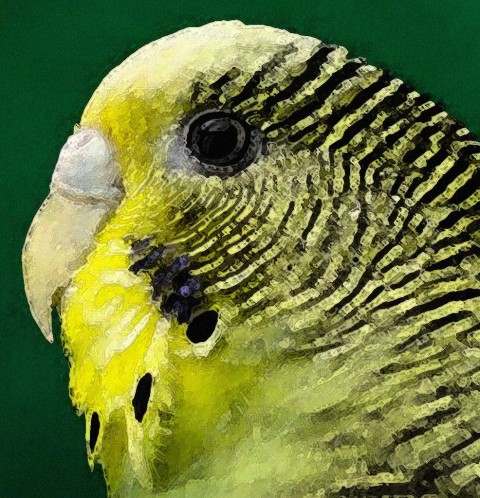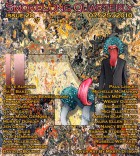He ran toward the river and watched his brother’s head rise and disappear, rise and disappear as the current butted him downstream. No one had gone after his brother: not the other boys, not his mother, not him. Then, finally, his brother’s arms began to move, hand-over-hand, like a baby learning to crawl, his progress slow at first. He watched as his brother mastered his breathing, face up (1, 2, 3) inhale, face under (4, 5, 6) exhale. He could hear his swim teacher’s voice demonstrating the rhythm. Their mother had warned him he had better pass this time because she wasn’t paying for a third try.
By the time he swam to the bank, his brother was laughing. He laughed so hard it made him cough. Then, their mother started laughing, too. She used margarita salt to remove the river leech on his brother’s leg. “Don’t you cry,” she told his brother, and he didn’t.
Five years later, this is the day you remember as you sit in the kitchen with your mother, the two of you caught in the pause before something has to happen. You can only wait until he washes up, until speculation becomes fact.
“A rock,” she says. “He hits his head and not one person hears him go in?”
You bring her fresh ice and keep her comfortable with your silence.
“He was my first,” she slurs, “but you were my favorite.”
Later, when it’s much darker and you both know no more news will come until morning, your mother gets it in her head to release the parakeets you and he gave her for Mother’s Day two years back. They were gifts for her, but she let the two of you name them. Your brother named his Starsky, and you named yours Butch. On nights when your brother was outdown by the river for bonfires and beersand when you were supposed to be sleeping, you used to listen to her talk to the birds.
“This isn’t how this is supposed to be,” she says now. She opens the cage and reaches for Starsky. “You’re wild,” she tells him. She turns him loose. She opens the patio door and shoos him toward it. “Get out, get out.”
When the bird doesn’t make it past the kitchen table, she goes to the closet for the broom, cocks back her arm like a home-run slugger. Her first shot goes wide. The bird begins to panic. Confused, it starts back toward the cage, and she hits it hard with a second swing, lets the broom fall along with its body.
“Fly, goddamn it.”
When she pulls Butch from the cage, you have to stop her.
Don’t, you say.
Take the bird from her shaking hands.
Smooth its ruffled feathers, its clipped wings.
Hold it against your heart, and then tell her the truth as you see it: he’s not going to leave you. He doesn’t know the first thing about how it feels to fly.



 The core workshop of SmokeLong Fitness is all in writing, so you can take part from anywhere at anytime. We are excited about creating a supportive, consistent and structured environment for flash writers to work on their craft in a community. We are thrilled and proud to say that our workshop participants have won, placed, or been listed in every major flash competition. Community works.
The core workshop of SmokeLong Fitness is all in writing, so you can take part from anywhere at anytime. We are excited about creating a supportive, consistent and structured environment for flash writers to work on their craft in a community. We are thrilled and proud to say that our workshop participants have won, placed, or been listed in every major flash competition. Community works.